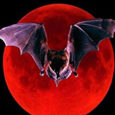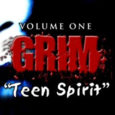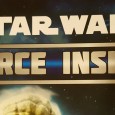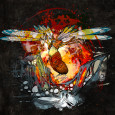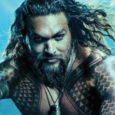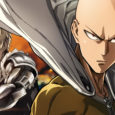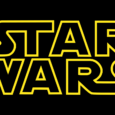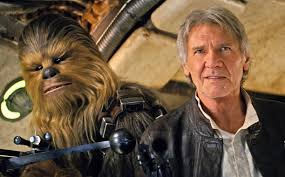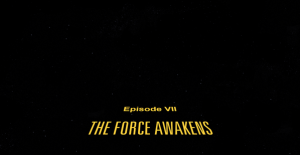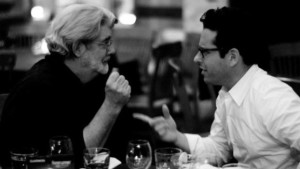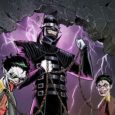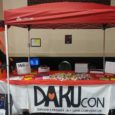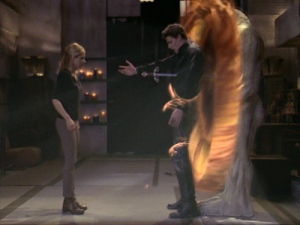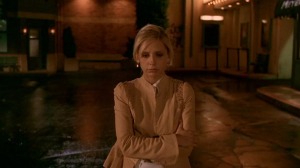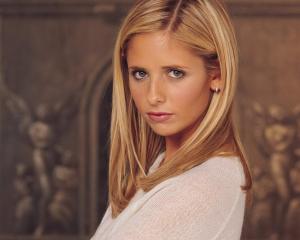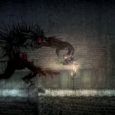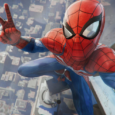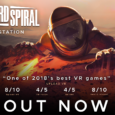Though a novelist at heart, London born author Richard K. Morgan has quite the resume, having taken a dip into different corners of the writing pool. In addition to writing the story for 2011’s Crysis 2 for noted video game publisher, Electronic Arts, Morgan has also gone a few rounds with Marvel’s spy extraordinaire, Natasha Romanoff, and is currently penning a fantasy trilogy starring a gay protagonist, a surprising rarity within the genre. We hopped on the chance to discuss these things as well as his current project, a digital gamebook of his 2008 fantasy series, A Land Fit For Heroes.
Kimi Britt: At what point did you make the decision that being a writer was something you wanted to do for the rest of your life?
Richard Morgan: Well, early enough that I can’t really remember making it! J K Rowling has a nice way of putting it – she said once in interview that ever since she was old enough to understand that there were people who made their living from writing stories, that was what she wanted to be. Same for me.
KB: Were there any specific works or authors who were some of your early inspirations?
RM: I think there was always a pretty even divide between my SF and Fantasy inspirations and then the stuff you could best designate, I guess, as hardboiled. Growing up, I was a huge fan of Michael Moorcock and Poul Anderson, with a side order of Bob Shaw. But at the same age – rather alarmingly – I was also tearing through Ian Fleming’s Bond and Leslie Charteris’s (original, written in the twenties and thirties) Saint books. Then, in the late seventies, just as I was hitting my teens, I came across William Gibson’s early short stories in Omni magazine and – wow! blam! critical mass! Because, of course, what Gibson had done in those stories was synthesise an alloy of exactly those two genre strands I loved so much – hardboiled noir and the finest speculative SF. I knew instantly that this – this! – was the kind of stuff I wanted to write myself.
KB: What rituals or habits did you adopt when you first started writing, and are they still prevalent in your everyday routine?
RM: Truth is I’m not good at ritual, and the way I write – exploratory, improvised, and painfully slow! – doesn’t lend itself to particularly good working practices. What I did in the early years was just dedicate every available hour of downtime I had to writing, whenever I could and wherever I was. And to be honest, that hasn’t changed all that much even now – it’s just that these days, with no day job to distract me, I have a lot more downtime available, so I get more done!
KB: With novels, comic books, and video games in your repertoire, you’re like a triple threat of the literary world. Was there ever a dramatic difference between these genres during the creation process? Are the three vastly different?
RM: Oh fuck yes – game writing and novel writing are about as far apart as it’s possible to get as creative processes. As a novelist, you’re intensely solitary; you sit in your room and type, you sit in your room and type – usually for a year or more, with no – or at best minimal – feedback until you turn in your draft. Game writing is the exact opposite – it’s intensely collaborative, team-based, fast and modular. You spend a lot of time in meetings, going back and forth to ensure you get a good fit with the other components of the game, and you tend to work in chunks – a cut scene script, a character sketch, a set of situational lines – and you get feedback – good and bad! – on those chunks very fast. You send an item out, get it signed off – or not! – and you’re done with it, so on to the next chunk. Also – this is more an attitudinal thing than a process issue – as a novelist, you know that what you’re writing is the whole thing, whereas in game writing, the work you do is essentially just a support framework for the main gig, which is the gameplay. You could write the finest game storyline ever, the best and sharpest in-game lines in the whole wide world, but if what you’ve done doesn’t gel with the rest, or worse still actually gets in the way of the gameplay, then you’ve failed. That’s a suitably humbling thing for a novelist to take on board.
Comicbook writing, I guess, is something of a midpoint between those two extremes – what you’re doing is the main gig, but it’s a main gig you share with the artist; comparing it with game writing, it’s like the difference between being the bass player in a four or five piece band and being the guitarist in one of those guitar and female vocal duos like the Kills or Mazzy Star. There’s a lot more conscious structuring involved than in novel writing – or at least than in the way I write a novel! – but it’s still largely about uninterrupted flow the way novel work is. If writing a novel is jazz, then writing a comicbook is perhaps more like rock and roll or the blues.
KB: Your sci-fi novel, Altered Carbon, is currently being developed for a movie adaptation. As the author of the source material, how much input do you have on that project?
RM: Generally speaking, when you get a movie deal, you take the money, hand the property over, and that’s about it. It’s rare for a novelist to be involved more deeply than that unless they’ve specifically held out for that involvement contractually, and I never have. My feeling is that when you give your book to someone to turn into the a movie, you need to be comfortable about getting out of the way and letting them work. Sure, you could always jump in and ask to learn the whole exciting process of moviemaking along the way, but is the best place to get that work experience really right bang in the middle of some seasoned film professionals’ attempt to turn your novel into a blockbusting movie? That said, the people I’m dealing with in this case – Laeta Kalogridis and Mythology Entertainment – have been really great about keeping me abreast of the process. And the way the contract is structured – this is something that was offered without my asking for it – once the movie is greenlit, I’m invited to come aboard as creative consultant, which should be a lot of fun.
KB: Some book to movie translations leave fans of the original work less than satisfied with the experience. Are you apprehensive about this prospect or does it feel like a natural progression?
RMl Yeah, there’s really nothing much you can do about that. What fans (and writers!) have to understand is that the movie is not the book, and never can be, it has to change in order to work, to live and breathe in such a radically different medium. What you’re aiming to capture is not the thing itself, but the spirit of the thing. And you’ve got to have faith in the people who’ve taken on the work of making that transformation happen (or at least be sanguine about it, if you’ve sold big for what you suspect will be a pretty crappy product :-) ). Like the old James M Cain quote goes – “People tell me, don’t you care what they’ve done to your book? I tell them, they haven’t done anything to my book. It’s right there on the shelf.”
In my case, I have every faith that the people who are working on Altered Carbon really want to honour the spirit of the novel, and however much my control-freak tendencies might pop and sizzle, I just have to let them get on with the job.
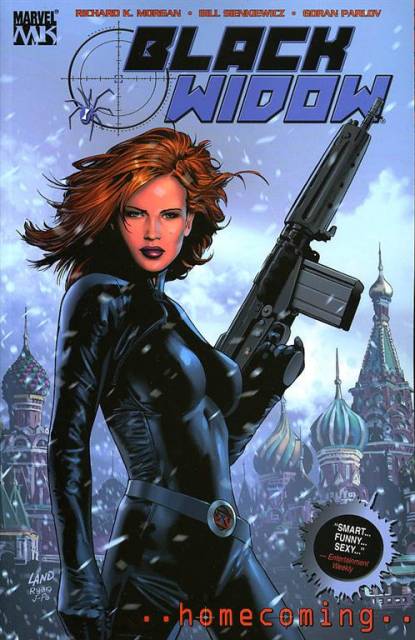 KB: With the influence you had on Black Widow’s characterization and how well the Avengers is doing, do you feel like she is accurately portrayed?
KB: With the influence you had on Black Widow’s characterization and how well the Avengers is doing, do you feel like she is accurately portrayed?
RM: Absolutely not, but what can you expect? I’ve said this before at length to Charlie Jane Anders over at Io9 – the Widow exists as an adjunct of a money-spinning superhero franchise catering to the tastes of 12 to 14 year old boys (and men who’ve somehow managed to grow up and retain a 12 to 14 year old boy heart). As such, she’s the epitome of unthreatening femininity grafted onto a pornstar’s T&A chassis and imbued with a set of plug-and-play boy-hero fisticuff character tics and reflexes. There’s nothing in that for women, nothing much in it even for genuinely grown-up males. The Widow I wrote for Marvel back in the early 2000s was her own woman, older, seasoned, hard as nails and unapologetic about it, centre stage in her own story. And let me tell you, that story flew like a fucking brick – the broad Marvel fanbase hated it. They didn’t like this genuinely empowered (and therefore genuinely feminist) female protagonist, and they voted with their wallets. The arc did disastrously low numbers by Marvel standards. So am I surprised by the version of the Widow that’s now emerged in the movies – hell, no! Just immensely saddened.
KB: Given the chance, would you ever want to return to continue her story?
RM: Are you fucking kidding! I’d love to. Writing Natasha, really letting her breathe, was a total blast! I’d jump at the chance to build a movie around her that did the same things Homecoming did. But there’s no way that’s ever going to happen. Don’t get me wrong, Marvel were great to work for; very professional, very supportive of what I was trying to do, and they really went out on a limb by letting me run with the character for a second arc when the first one had sold so dismally. But in the end, they killed the series for one very simple reason; it was a losing proposition – an expensive auteur project (I mean, we had Bill Sienkiewicz aboard, for Christ’s sake!), and doing dismally downward-spiralling numbers. By contrast, the version of the Widow you see in the movies is pulling in tens of millions of fanboy dollars. I mean, do the math – there’s just no way anyone’s going to let me within a mile of Natasha ever again! :-)
KB: Since you’ve had experience writing for both readers and gamers separately, the idea of bringing your dark fantasy series A Land Fit For Heroes to Steam, iOS, and Android as a gamebook is definitely intriguing to someone who enjoys both. How will a digital gamebook differ from the more traditional “Choose Your Own Adventure” type stories currently available? CYOA stories are typically made for a younger crowd, yet your series offers plenty of mature and controversial themes. Will these remain, and if so, how will they engage the player and the choices they make?
RM: That’s a question I’m not really qualified to answer – I never read the CYOA books back in the day, and I haven’t accessed any of the newer content either (these days I’m so busy I barely have time to read books or play games of any sort, let alone explore whole new formats!)
But my understanding from the brief the guys at Liber Primus have given me is that the vast majority of this stuff is YA-level in content. Land Fit for Heroes is avowedly not – it’s very much an adult fantasy, with adult themes and characters, and it’s as grim as anything I’ve ever written, which is saying something. So there’s that. :-)
 KB: How closely will the gamebook follow the existing story? Do players who have previously read the original have an advantage over newcomers to the series?
KB: How closely will the gamebook follow the existing story? Do players who have previously read the original have an advantage over newcomers to the series?
RM: The story in the gamebooks runs parallel to the main narrative in the novels – there’s some faint crossover with my characters in that some of them will make brief cameo appearances in the gamebook story, but the narrative thread itself follows three entirely new characters, and their adventures are disconnected from the storylines in the trilogy – though what they do and go through will be shown to have influence on the overall turn of events detailed in the novels. What this means for readers who’ve never read my stuff is that they’ll get a different initial angle of entry into my universe; but that won’t disadvantage them in any way as far as the gamebook story is concerned. And of course, if they’re curious about the wider world of the fiction, they can always go off and buy the trilogy after.
KB: What other projects are you currently working on?
RM: I’ve got a new novel up on the blocks at the moment – it’s a return to the universe of my 2007 novel Black Man, but set a good hundred or more years after the events of that story, and on a recently colonised Mars rather than on Earth. It’s called Thin Air and features another genetically modified cast-off protagonist, though a somewhat different and more down-at-heel one than Carl Marsalis in Black Man. I’ve gone right back to the noir wellspring I used in my Takeshi Kovacs books with this one – first person narrative, mean streets, corruption from high to low, a crime no-one wants solved and enemies at every turn. Feels good to be back behind the wheel of one of these!
KB: What sorts of media are you consuming in your spare time and would recommend?
RM: Not a whole lot of spare time to burn right now, I just moved from one end of the country to the other and I’m snowed under with busted deadlines. I am listening to quite a lot of music while I work, though; currently bingeing on 2 Cellos, Health and Cold Specks. And I just discovered an up-and-coming singer song-writer called Isaac Gracie whose single Last Words would make an awesome playout for a movie of my novel Market Forces. I just finished reading Ta-Nehisi Coates’ Between the World and Me, which I’d say is required reading for anyone interested in what’s happening to America at the moment and made me tremble with a father’s rage, and I’m now burning through John Horner Jacobs’ The Incorruptibles which is a superbly fresh-feeling mash-up of fantasy, alternate history and western adventure, the first of a trilogy whose second instalment, Foreign Devils, just came out – I’m running to catch up here! I’ve also been catching up on missed SF movies like Chappie and Ex Machina (both of which I guess I’d recommend seeing but neither of which in the end quite lit my fire) and more noirish fare like Scott Cooper’s Out of the Furnace and Dennis Lehane’s The Drop (both of which are awesome must-see triumphs). Still, sadly, waiting for someone in SF movie making – well, apart from George Miller, that is – to combine the vision and imagination in the former two with the close focus grit and commitment to human realities of the latter. In gaming, I’ve been making do with obsessive replays of The Last of Us, Max Payne 3 and Far Cry until there are enough good games out there to justify the expense of acquiring a next-gen console. At which point, I imagine I’ll be trying Bloodborne.
KB: Finally, where can you be found in various corners of the Internet?
RM: I keep a website at richardkmorgan.com where I try to find time and inspiration to blog at least once a month, and I’m on Twitter as @quellist1. Come on over!
Richard K. Morgan is the acclaimed author of The Dark Defiles, The Cold Commands, The Steel Remains, and Altered Carbon, a New York Times Notable Book that won the Philip K. Dick Award in 2003. A Land Fit For Heroes will be available on Android and ioS, as well as a PC version of the gamebook for Steam in the coming months.
Marvel films are an interesting phenomenon I enjoy taking apart and looking at closer. Many people may say “This is fun, this movie is not supposed to be a paragon of progress, it’s a summer blockbuster! Why are you so critical?!” and to that I say “Why not?” We as a nation feed off of the images we are given and I think we deserve great work. I loved Captain America. The original Avengers was fun enough. Winter Soldier is a totally different beast but boasts some of the most solid work Marvel’s done yet. How does Avengers: Age of Ultron fare?
First, it must be said upfront that opinions on Joss Whedon as a writer and as a director right now especially in regards to Black Widow (Scarlett Johansson) are obviously a hot topic and hard to avoid. I have my opinions. I’ve seen a bulk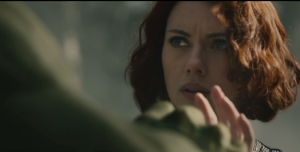 of his body of work. Binge watching Dollhouse does things to you. And yes, Age of Ultron definitely fits into his established canon style, along with all the associated pluses and minuses therein. Yes he can do good stylish action and funny banter. He can write nuanced women. But he is also a longstanding problematic writer too, documented, often in cases regarding those same women. He is both simultaneously. Is he responsible for all of Marvel’s shortcomings regarding Natasha? Well not all, some are systemic to Marvel Studios in general as revealed by Wikileaks and the Sony hacks, and their personal choices and stances, but that doesn’t wash his hands clean either considering he was both writer and director (I’m well aware he and Marvel fought over certain scenes, especially the farm scenes and Thor’s prophetic water-dip) on this film.
of his body of work. Binge watching Dollhouse does things to you. And yes, Age of Ultron definitely fits into his established canon style, along with all the associated pluses and minuses therein. Yes he can do good stylish action and funny banter. He can write nuanced women. But he is also a longstanding problematic writer too, documented, often in cases regarding those same women. He is both simultaneously. Is he responsible for all of Marvel’s shortcomings regarding Natasha? Well not all, some are systemic to Marvel Studios in general as revealed by Wikileaks and the Sony hacks, and their personal choices and stances, but that doesn’t wash his hands clean either considering he was both writer and director (I’m well aware he and Marvel fought over certain scenes, especially the farm scenes and Thor’s prophetic water-dip) on this film.
So yes, hold him and the studio (and merch companies) accountable for things. Open up discussion. As for Black Widow I have read up on the arguments for both sides regarding her treatment and can interpret the film both ways. Both Bruce Banner and Black Widow aspiring for normalcy of some kind (more-so the choice to have it or not) when it is nearly impossible for them due to their own individual circumstances is a very valid plot thread. For Natasha it’s clear that her being a hero, being heroic, is atonement. She’s like a Lady Macbeth, a person who can never get her hands clean of the blood from her past in her own mind (meanwhile for others the water has already has run clean) and so she continues to do right in the chance it may wash off for herself. Did they convey this the best way they could have? Probably not. Was “I’m a monster” awkward and open to be misunderstood if it wasn’t about her inability to have children naturally and was instead intended as a blanket phrase regarding her past? Very. Would Joss have benefited from a co-writer? Yes. Did I like the romance? Sort of? Does Black Widow need her own film and should have had one by now? Yes. And that’s where I’ll end that.
As for the rest of the film itself; how well does Avengers Age of Ultron stand structurally as a film?
Fun at times, but flawed from an editing and directing standpoint. It hits a lot of sweet spots for what you’d want from a summer action film and its plentiful Marvel Easter eggs kept people, even myself, wriggling a little in seats. In that sense it’s not a dud. The film crackles with a degree of energy and puckishness, which, juxtaposed with the superhero-brand violence and physics continues a distinct calling card tonally for the Avengers and by extension the 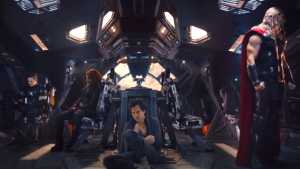 MCU franchise. Said tone was a bit all over the place here, but if properly balanced as it has been in other films, it will be useful in differentiating Marvel’s films from DC’s forthcoming grey and rain-drenched cinematic world which I believe will have much less room for “fun”.
MCU franchise. Said tone was a bit all over the place here, but if properly balanced as it has been in other films, it will be useful in differentiating Marvel’s films from DC’s forthcoming grey and rain-drenched cinematic world which I believe will have much less room for “fun”.
Avengers Age of Ultron‘s opening in particular was a fun, verging on camp romp with it’s over the top action and choreography. The Hulk take-down was properly bonkers. But, ultimately after leaving the movie I found myself perplexed regarding if I really liked the film as a whole.
Distilled down into moments it was certainly entertaining. Most of anything Pietro (Aaron Taylor-Johnsohn) did made me laugh. The Mjolnir fly-by ponder and grab? Funny. Hulk Buster satellite and gear named Veronica (oh poor put-on-a-bus Betty Ross)? Perfect. Ultron targeting Thor because he’s a powerhouse and “annoying”? Gold. Ultron himself? I’m split. When looked at as a larger piece it is not as seamless as the other films as pacing is somewhat…off. The last quarter of the film in particular suffered a sense of discord all over. To hear that there is likely nearly an hour or more worth of scenes on the cutting room floor is not surprising; it felt like it. Additionally, at least in my full theater, there were scenes that were meant to be serious or dynamic but instead the audience laughed, clues to perhaps some misguided writing or directing (or maybe even a bit of both).
It’s not life changing cinema. It’s dynamic, it’s popcorn munching, but Avengers Age of Ultron ultimately got lost in itself.
Rating: C
However, it has a lot of good thematic nuggets in there. Perhaps a “director’s cut” version of the film could remedy a lot of the pacing and meat-y bits that I’m missing.
How could it have improved? Here are 5 tweaks and suggestions that could have made the film even greater.
1. Have a Black Panther Cameo
You have Hulk wreck havoc in Africa in proximity to what we can assume is near Wakanda (but is not in fact Wakanda). Damage is equivalent to a major terrorist attack if not more. A brief video of T’Challa appearing on a screen post Hulk-bust having a news conference angrily berating The Avengers and Tony Stark for leaving so soon and handing everything off (not knowing of the Ultron situation) would have been a nice surprise and also set up any possible tensions that could later blossom during his official “cape” debut.
2. More “Hulk-bust” fall-out // Up Ultron’s Scare Factor.
Spinning off of the above, a more visible global response to the Hulk and Iron-Man battle with faux news (har har har) reports, etc would have been good. More tangible backlash against them as a group might have been interesting as they tr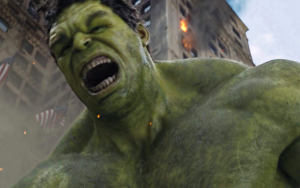 y to hide from Ultron which could be a good foundation for the Civil War atmosphere. Ultron doing his part by further manipulating the media and people to turn against them would have been compelling.
y to hide from Ultron which could be a good foundation for the Civil War atmosphere. Ultron doing his part by further manipulating the media and people to turn against them would have been compelling.
Ultron in general was surprisingly limited and small scale considering he was literally able to infiltrate the internet. He didn’t mess things up enough. While his giant rock pummeling into the earth causing mass extinction is insidious and mega-bad, he felt a lot smaller of a threat than the alien hoard flying out of a portal in the sky or an entire secret government task force being revealed as corrupt Neo-Nazis with killer big brother satellite intentions. Once the rock started to fly, yes that’s scary, but there wasn’t any other sense of pomp or chaos. Ultron’s constant quipping, which made great use of James Spader wasn’t given enough of an outlet. There are hints of Frankenstein’s monster and of course, Pinocchio in his desire to get a new body, to be “real”, but the torment of the former eloquent but murderous literary figure who is alone and aware of his unnatural-ness and alone-ness isn’t fully realized. We get a shade of that, when he tells Natasha he’s lonely, but it’s never quite fully explored from there outside of Vision confronting the last Ultron-bot.
3. More Ladies, More Representation
The lampshade joke regarding the lack of women and way too many men at Tony Stark’s party as quipped by Maria Hill in my theater was met with half laughter and half groans. It comes off as “Oh hey we know it’s really bad demographics wise, see we’re self aware!” and think that’s enough to skid by. It would be different had they had then solved that problem later in the film and perhaps revisited the comment to essentially render it moot.
It’s bad enough Betty Ross was seemingly wiped from Hulk’s canon. I know Hulk is not as popular (I certainly haven’t seen his film) but the glaring omission of her character as an established love interest and a connection to Bruce as someone emotionally invested is a lost opportunity on multiple levels considering her role in the comics. Small cameos from Pepper Pots (Gwyneth Paltrow) and or Jane Foster (Natalie Portman) would have been appreciated as their absences were unnatural given the circumstances (no angry video calls from Pepper?) and further lamp-shaded with awkward banter from their respective boyfriends.
While Agents of Shield features the first leading and supporting Asian women in the MCU universe, Melinda May (Ming-Na Wen) and Skye (Chloe Bennet), Helen Cho marks the first entry of an Asian supporting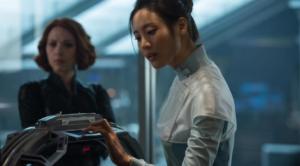 lead in the films. She’s pretty important. Not only does she bear the name of Amadeus Cho’s mom from the comics, but she’s also instrumental (albeit while brainwashed)
lead in the films. She’s pretty important. Not only does she bear the name of Amadeus Cho’s mom from the comics, but she’s also instrumental (albeit while brainwashed) in the creation of Vision ( (Paul Bettany). However, I wish she had been given a few more scenes. I also wish, and this is entirely self-serving, that she was the MCU’s Wasp, following the “Ultimate” universe version, adding two possible women of color to the roster of Avengers caped main players in this film (Wanda and Helen).
The problem with Helen Cho in Age of Ultron is that she just…vanishes. The last we see of her is after she was throttled for sabotaging things post-mind control. The Avengers come to her aid, she tells them where to go, and she is just gone from thereon out. Helen is, from what I can recall, not shown again until the end, when all is well and she’s working at the new Avengers headquarters. One of the people I went with, in which our screening was her second viewing, was flabbergasted after noticing Cho at the end and realized she had actually survived the film; she thought she died the first time she saw it. Where did she go from there? She helped create Vision. She’s just like Tony Stark in that she had a hand in creating an entity unique to itself.How did she feel about that? It’s a Dr. Frankenstein moment fueled by Thor thunder. Shouldn’t that have been explored more?
4. Make the small stone church featured a small synagogue.
Marvel has gotten a lot of flack for not casting a Jewish, Roma, or Jewish-Roma actress for Scarlet Witch (Elizabeth Olsen) nor making mention of the twins ethnoreligious backgrounds in the movie. Since Quicksilver’s actor Aaron 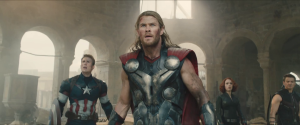 Taylor-Johnsohn is Jewish (many reviewers are scathingly erasing this fact and calling him gentile) an easy fix aside from actually casting an Eastern European Jewish, Roma, or Jewish-Roma actress for Wanda, they could have, at the least, made the church featured in Age of Ultron to be an old small synagogue instead. A simple comment from one of the twins while inside the building for the first time could then infer their backgrounds. It would have been an easy swap and a subtle way to add diversity to the roster even without access to Magneto.
Taylor-Johnsohn is Jewish (many reviewers are scathingly erasing this fact and calling him gentile) an easy fix aside from actually casting an Eastern European Jewish, Roma, or Jewish-Roma actress for Wanda, they could have, at the least, made the church featured in Age of Ultron to be an old small synagogue instead. A simple comment from one of the twins while inside the building for the first time could then infer their backgrounds. It would have been an easy swap and a subtle way to add diversity to the roster even without access to Magneto.
5. Give the big finale (hey, how about the whole movie) to Scarlet Witch
Ultron states he has no strings to hold him down, but the real plot of the film are the strings that bind the Maximoff twins becoming undone. I think they should have opened AoU showing Wanda and Pietro’s experience in the war in their country and seeing STARK on the weapons. Then cut to the Avengers’ siege on the stronghold during the current day as they had it.
Tony also shouldn’t have been the one to deliver the final blow to the giant rock/city. Sure they gave Scarlet Witch the big “heart” ripping out scene, but the film would have reached a pretty iconic moment had they given her the 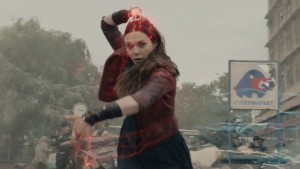 ending entirely. They did a mini-outburst showing what she can do powers-wise when upset, but that wasn’t enough.
ending entirely. They did a mini-outburst showing what she can do powers-wise when upset, but that wasn’t enough.
Scarlet Witch is supposed to be powerful. Very. Powerful. Imagine, Tony’s beam fails and all seems lost, but then Wanda, in a fit of rage and emotion (in response to what occurs towards the end) finally shows the extent of her abilities and wanting so bad to find justice, engulfs the entire city with her powers. She then literally STOPS the city from impact and sets it down back to where it was, or crumbles and tears it apart herself. Given Ultron’s Pinocchio obsession, the theme of puppets is also fitting for Wanda. She had been used as a puppet for so long first by Hydra as a guinea pig and then by Ultron and for her to have a “There are no strings on me” moment would have been such a great counter to Ultron’s own assertions of the line (which are in my opinion a false one, as he is following Tony’s zealous but flawed programming thus indeed has a string), since Wanda would in comparison truly have been string-free at that point, and then saves the city by controlling it herself, the way a puppeteer controls a marionette; the puppet becomes the puppeteer.
Final Verdict
The film is an ambitious one and juggles a lot of characters so it’s not surprising things got pushed to the side and it got disorganized and tripped over itself in the process. However, it sets up some good things; the new Avengers roster consisting of Black Widow, Scarlet Witch, War Machine (Don Cheadle), Falcon (Anthony Mackie), Captain America (Chris Evans) and the cyborg Vision is more diverse than the prior team.I think ultimately the best thing about Age of Ultron is the discussion it’s causing. Its making people talk, and talk a lot. Our pop-culture won’t change otherwise. I think that in itself is pretty…super. Talk with us. What did you think?
Max Eber
Staff Writer
@maxlikescomics

JEN’S REVIEW
Agents of S.H.I.E.L.D. finally premiered this week–I say finally for many reasons, not the least of which being that Joss Whedon is FINALLY back on TV. Second, of course, is that we’ve been hearing about this show coming out for quite some time now, and it’s no surprise that the pilot set an insanely high new standard for the viewing numbers of television premieres (though to be fair, the show does come equipped with multiple arsenals of built-in fan bases).
A show like “S.H.I.E.L.D.” can’t, and shouldn’t, premiere without expectations, critics, and insta-lovers. As always, I fall somewhere firmly in the middle of the pack, though I have to say that so far my positive thoughts are outweighing the negatives. Perhaps it’s not even fair to call them “negatives” at this point in the game, as we’ve only gotten one episode and there’s no way to know where the show is really going yet.
My biggest problem is that the premise of the show seems…cliche. There are heroes in the world, and everyone knows about them, and they all have to make decisions about revealing themselves or remaining hidden. Didn’t this already happen? Didn’t this already happen IN THIS FORMAT? Is this a show about superheroes at all? No–and maybe that’s where the difference lies. The show isn’t called “New York Post-Avengers”, it’s not the “Real Housewives of Stark Tower”, it’s “Agents of SHIELD”. This will be a show about HUMANITY and how it is affected by superheroes walking among us. So does that mean we’ve come full-circle on super heroes? After all, we’ve seen science fiction do this cake walk already: start out debating and imagining what could be possible, then find out whether or not it should be. That genre took fifty years to get deep and meta…maybe now it’s time for superheroes to do the same within mass media. Of course Whedon has done this before, shifting the focus from hero to villain and questioning the meaning of “right” and “wrong”, now he shifts the lens entirely from the Supers to the Humans and asks if there’s really any difference at all.
If it wasn’t already clear, I’m talking about 2008’s “Doctor Horrible’s Sing-Along Blog”, which is still among my favorite things ever created. While the two “shows” are wildly different, they also have plenty in common, not the least of which is their quotability. “S.H.I.E.L.D.” had some elements that blended in to the superhero genre, but it is definitely going to be loved for its language. The dialogue at once makes the show self-aware of, (“someone really wanted our initials to spell shield”) and a parody of (“I think there’s a bulb out” and “I think it’s a little poop. With knives sticking out of it.”) the superhero genre, and I hope we get to see more of this blend as the series continues. I don’t know that Whedon could do it any other way.
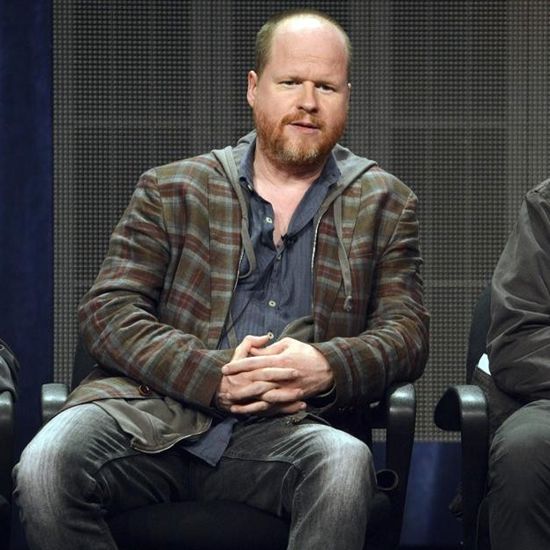
Or better yet, let your British Wonder twins tell me instead. Yes. This thought pleases me.
Staff Writer
JOHN’S REVIEW
My view of Agents of S.H.I.E.L.D. is unfortunately that it didn’t meet my expectations. It wasn’t what I really expected. I’m cautiously optimistic, but I can’t shake the feeling that the show was missing something. Not sure what though, but I’ll name what bothered me.
First of all it annoyed me how much screen time the damsel in distress, quite literally saved from a burning building, got.

I’m sure you all saw this shot in the trailer. It appeals to teenage boys hoping to save a cute damsel in distress, and Whedon made sure to frame it so that just enough leg was there to make sure that “sex sells” angle was there. Then this still shot of him saving her became a clue and no opportunity was missed to plaster this image on the background monitors as other characters spoke. Which brings me to my second complaint.
The dialogue. No, no, no, put down your pitchforks. What I mean is that the writing sounded good. Most of the episodes charming moments came from dialogue. But oh sweet lord, the direction and pacing sucked. I was never on the edge of my seat. The dialogue was the shows only strength. I had to double-check that Whedon directed and sure enough, he does. What happened man? This is the first episode and I expected a bit more dazzle. Instead you gave me something akin to an episode six, where the characters meander aimlessly on some small issue. It tried to be big with a secret evil organization and an explosion in the beginning, but it never felt big. Maybe that’s a financial issue like the fact that the whole thing felt….
Cheap. The CGI was far from convincing, the camera angles did nothing to inspire, and the little action there was consisted of eight camera cuts to hide how poorly choreographed it all was. You even stole the ending to Back to the Future and somehow managed to make the flying car look cheaper than visual effects from thirty years ago. We all know The Avengers made more money than religion so why couldn’t you guys invest a few more dollars in the spin-off? Is it because it is an almost guaranteed success and you don’t have to try? Or was that premiere simply the pilot you pitched to get the show greenlit in the first place?


It may be hard to believe, but I didn’t hate the show. I think it has potential and I’m hoping the following episodes change my perspective. Right now I’m not a fan, but a casual onlooker. Come on Whedon, make me care about these characters.
Johnny Townsend
Staff Writer
koala@ihogeek.com
I’ve spent a large portion of my life wanting to be Buffy Summers. While I have Faith Lehane’s tattoo emblazoned on my upper right arm, Buffy was my model. I know I’m not alone in this, I know a good deal of my generation grew up with the same goal: to someday be Buffy Summers.
What most people seem to remember about Buffy Summers: she wins a lot.
What most people seem to forget about Buffy Summers: she lost a lot.
Now, it’s not that people don’t remember these plot points, obviously they do. But they don’t seem to remember what loss means. What it can do to a person. They don’t remember that even as she is winning she is often losing. They forget that, because we are limited to an hour of Buffy each installment, we don’t see the full effect of the loss on her and those around her.
We don’t see Buffy really suffer because it’s not “good TV.” Genuine reality rarely is.
Buffy loses friends and allies and the mourning is brief. Buffy is forced to literally send the man she loves to Hell because, even if he’s good again now, he has been bad. He comes back and the problem is apparently solved (good TV), but Buffy’s pain over all of this is truncated. Buffy is nearly raped by someone she’s come to trust and the backlash against him is unbelievably portrayed (good TV?). Buffy dies, twice, and she comes back.
Real life for those of us who walk the path of Buffy does not have the convenience of “the network wants another season.” We have to live the fight in real time.
Maybe all you see from us is the equivalent of an hour a week. So when we cry or when we show pain, it’s unusual for you. Maybe it’s unbelievable. Strong women don’t DO that, Buffy cried in montages, why can’t you cry in montages?
We get told we’re “strong enough to handle this.” And we are. Trust me, we are. But even strong girls are defeated. Even strong girls hurt and cry and we need to be allowed to do it, no matter how uncomfortable that thought might make you. We need to suffer our losses, and we will.
This is our fight. Buffy never fought because she wanted to, in several cases she tries to stop fighting only to find out she can’t. Buffy fights because she has to. And we fight because there isn’t an alternative.
The dark things out there will always out number us. They will sometimes win. There will be cases where there is nothing we can really do, we don’t have the power to do it (Season 5 reminder: Buffy doesn’t kill the Big Bad that season. Giles has to do it for her because Buffy has limits imposed on her that he doesn’t). We can’t always just roundhouse kick the problem and pun and walk away. Not just because this is the real world, but because even within Buffy’s world that’s not always possible.
Allies are hugely important. But they’re ALLIES, they’re not directly in the fight, and sometimes they need to back off and let us fight. Sometimes they have to let us cry and be weak and not belittle the very, very real shit we live with every day. Xander was sometimes a total asshole and needed to shut his fucking mouth, okay? He was important, sure. However, while it was a fight he profited from, it WASN’T. HIS. FIGHT.
I have done my best to be Buffy Summers. Even in that I know I’ve failed. But I’ve learned as I’ve gone along, about my power, about power in general, that having power isn’t the same as being able to use it wisely, that it’s not about strength or weakness but about humanity and all the things that come with it.
I am strong. I know how to be strong. I have to keep fighting. Don’t you tell me what strength is.
Like the perfect wine and cheese, the strudel with le crème, or the beer with another beer, watching the right two movies back to back can bring out the finer, subtler qualities in both. That’s why I’ve assembled a list of my personal suggestions for possible double-feature nights. For the sake of variety (and because I like to challenge myself) I chose to avoid using direct sequels or deliver a double dose of a writer/director in the same pairing.
Get Down! Get Down Again! The Running Man (1987) / Total Recall (1990)
I avoided pairing movies with the same writers, directors, or lead actors…with this one exception, because I for a time was not sure which movie was which. Yeah, Arnold’s action movies are all chock full of one liners, explosions, “babes” of the day, and silly villains with sillier deaths, but these two both throw Schwarzenegger into man on the run situations so similar and satisfying it really is hard to know where one stops and the other begins.
Which to Watch First? The Running Man has some of the most groan worthy one-liners you will ever hear, like when Maria Conchita Alonso asks Arnold what happened to Buzzsaw, who was just previously bisected with a chain saw, Arnold replies “he had to split” and his fight with hockey-themed stalker named Sub-Zero is a standout. Total Recall, for all its 90’s tropes, is still a Paul Verhoven film and has more to it than the simple exterior suggests. The action matches the fun of Running Man and is guilty of its own terrible lines, but getting those laughs out of the way can help you appreciate the solid qualities in Total Recall. The ambiguity on reality, alone gives it points for giving its audience some thinking room. The Running Man

Even in the Future Nothing Works! – The Fifth Element (1997) / Serenity (2005)
These two are an obvious match. They’re both futuristic, space-based, sci-fi action movies with large, ineffective governments clashing with the little guy and except for only one having aliens, both Besson’s and Whedon’s future visions are very culturally diverse. The stories differ but the archetypes are familiar. I could see Korben and Mal getting a drink while Shepherd Book and Father Cornelius discussed scripture, and River and Leeloo finger-painted or beat up tough guys or did whatever two crazy super powered girls would do.
Which to Watch First? I recommend beginning The Fifth Element, and after all the colorful fun, ‘splosions and 90’s end credits music you can jump straight into Serenity’s dustier adventure through the not so shiny future. Elements of Serenity hit a bit harder as well, so best to save those for last. The Fifth Element
Huzzah for 80’s Fantasy! – The Dark Crystal (1982) / Legend (1985)
It is hard to think of many quality live actions fantasy films from the pre-CG era, but these two always to come to mind first. Unlike more memorable fantasy movies in recent history, both of these movies were original stores and not adaptations from source material. The Dark Crystal highlights Brian Froud’s notable creativity and we are lucky that Jim Henson was there to bring these creations to the screen, and amazingly do so practically. Legend uses a classic stable of fantasy creatures such as goblins, unicorns, witches, and Tim Curry but through the use of academy award worthy makeup and prosthetic effects that make them more than stock creatures.
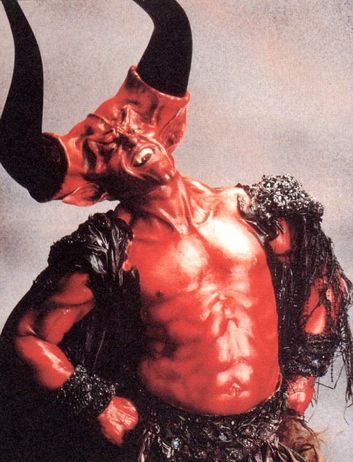
Which to Watch First? Ironically Legend is the decidedly darker of the two movies, and I feel the opening music and narration of The Dark Crystal is a good gateway. Finishing with Legend’s theatrical ending and original closing song by “Tangerine Dream” is more satisfying that Crystal’s successful but strangely somber ending. The Dark Crystal
You’re not Claustrophobic, Are You? – Alien (1979) / The Descent (2005)
After watching these two back to back, you’ll probably want to roll around in a sunny field full of daisies, because anything darker or more confined will give you waking nightmares. While the subsequent films in the Alien franchise are all action heavy, our first introduction to Ripley and the Xenomorph is a tense, ominous, horror movie: seven crew members and a killer alien trapped on cavernous space ship where “no one can hear you scream.” The Descent is one of the best horror films released in the thousands and traps our leads in a literal cave full of hungry mutated humanoids. The jump scares are typical but predominantly very effective making this a fun one to watch with an audience, but the mental instability of lead Sarah and claustrophobic scenes of spelunking are the most riveting.
Which to Watch First? Starting with Alien will give you an intentionally slow crawl into this pairing, and more enjoyable character time before shit hits the fan. The melancholic ending will transition well to the jolting start of The Descent and again I will recommend the original UK ending, as it is unquestionably better and may even make you rethink the ending of Alien. Alien
Video Games and Real Life Had Twins! – Scott Pilgrim vs. The World (2010) / Wreck-it Ralph (2012)
These two love letters to video games and arcade nostalgia pair well because they are two answers to the same question. Scott Pilgrim starts off with an 8-bit Universal title and introduces video game elements into the real world of Toronto, and Ralph puts us a world of video games that functions just like real life (sort of). You’ll have to decide if you’d rather have life like a video game or a video game like life, but if The Sims start playing me I’m going to be worried.
Which to Watch First? Another case in which I will leave it to your taste. I would watch the family film first, and then the one made for grown-ups but they’re similar in tone, pace, and length to not make much difference. Though SP has better music. What you should actually watch first is “Raiders of the Lost Arcade” segment from “Futurama.”

Band On the Road – The Blues Brothers (1980) / O Brother, Where Art Thou? (2000)
Twenty years apart in the making, and over forty in the setting these two films are incredibly different stylistically, but both have a group of musical criminals (or criminally inclined musicians) on the quest for charity and redemption, evading the law and various other colorful enemies they meet along the way. Neither are traditional musicals, but both are driven by a vast array of diegetic performances evocative of the locales the bands go through. They have very different senses of humor, which is why you won’t find Animal House paired with Fargo on this list, but these two form a pair of fun musical episodic adventures.
Which to Watch First? Here I’m really going to say it comes down to taste. Blues Brothers is the more farcical comedy with an upbeat soundtrack and O Brother is a retelling of “The Odyssey” through the music of the Depression-era American South. I’d prefer starting with Blues Brothers, but that’s just me. Tie
Creature Features with Likeable Bait – Jaws (1975) / Lake Placid (1999)
I’m not a huge fan of the run of the mill giant thing wants to eat you type creature features, but Jaws is the oft imitated, never duplicated template that set the bar for the whole genre. One reason Jaws still holds up, while most others do not, is that the human characters and the creature feel like equals and do not overshadow the other. Of course the shark is the anti-hero of the movie, getting his own POV kills before we even meet our full cast but by the time Brody, Quint, and Hoop-ah! set out to get him we know we’re in for a fight. It’s like Rocky II. Lake Placid plays out more like Home Alone 2, if Kevin was played by Bill Pullman, Brendan Gleeson, Oliver Platt, and Bridget Fonda, and the burglars and hotel staff were a giant alligator. And Betty White is the pigeon lady. That cast alone elevates a surprisingly clever script of what I think is an underappreciated, solid creature feature.
Which to Watch First? It’ll be interesting either way, but seeing Jaws begin so many clichés for its genre and then seeing the next generation’s homage garners more appreciation for the tropes than rehashing them because they ought to. You also don’t want to go backwards from the impressive animatronic and CG alligator to the barely functional Bruce. Jaws
The Black and White of Neo Noir – Kiss Kiss Bang Bang (2005) / Brick (2006)
Tonally these movies could not be more different, but they have their roots in similar pulp, noir, detective material and are both revolve around a murder mystery. They are also both products of a sole writer/director on the project, and I find movies like that tend make more of an impression; in this case KKBB and Brick show how differently Shane Black and Rian Johnson can interpret similar source material, while pulling fantastic performances from Robert Downey, Jr. and Joseph Gordon-Levitt.
Which to Watch First? Brick. No question that while Brick is a heavy, gritty movie, you will rather take a walk through those grimy streets first to wind up at a Hollywood party with gay Val Kilmer than the other way around. Brick

Pleasing Your Eye Holes – The Fall (2006) / Pan’s Labyrinth/“El Laberinto del Fauno” (2006)
Guillermo del Toro’s Pan’s Labyrinth is the more well known of these two, and even though they came out the same year and had many similarities, Tarsem Singh’s The Fall remains largely unknown to people who aren’t Lee Pace fangirls. Both of these films use the imaginations of young, traumatized girls as gateways to strikingly visual fantasy worlds. Putting these two films from foreign auteurs together is like matching The Wizard of Oz with Alice in Wonderland with more whimsy in the setting than the words.
Which to Watch First? Most people have already seen Pan’s Labyrinth and even though it is subtitled, while The Fall is in English, del Toro’s narrative is easier to follow and the world is more instantly engrossing. Pan’s Labyrinth / El Laberinto del Fauno
Non-American Love for American Action Movies – Hot Fuzz (2007) / Seven Psychopaths (2012)
It can be said that if you’ve seen one action movie you’ve seen them all, but that’s because for a lot of movie buffs they literally have. I wouldn’t call either of these movies parodies but Edgar Wright’s Hot Fuzz and Martin McDonagh’s Seven Psychopaths have a lot of laughs and fun with honest appreciation for all the good and bad action movies so influential to their careers. Hot Fuzz calls out its targets by name and is an Easter egg hunt of direct references, while Psychopaths is a more meta deconstruction of the genre and the writing process, but still with lots and lots of violence. To quote Sam Rockwell’s character, “Life-affirming, schmife-affirming. It’s called Seven fucking Psychopaths!”
Which to Watch First? Seven Psychopaths’ opening scene comparing the deaths of movie mobsters with real mobsters, delivered by Michael Pitt and Michael Stuhlbarg of Boardwalk Empire (a show about mobsters), so quickly sets the course for this movie’s take on reality that I was on board from the first few lines. While not as dark as McDonagh’s previous film, In Bruges, Psychopaths is big on the death, but the critiques it makes on the genre will be appreciated when revisited in the overall funnier Hot Fuzz. Seven Psychopaths




